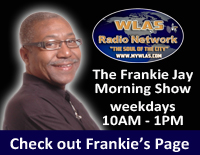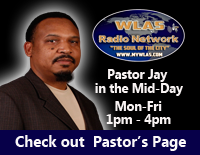
WELCOME TO UPSTATE SC AND NORTHEAST GEORGIA'S #1 STATION FOR TODAY'S R&B, HIP-HOP, GOSPEL AND SOUTHERN SOUL...FOR YOUR ADVERTISING NEEDS, BECOME A BUSINESS PARTNER TODAY!


ARTICLE
WASHINGTON, DC — A large majority of adults in the United States are stressed by mass shootings, and a third of U.S. adults say that fear of mass shootings stops them from going to certain places and events, according to a new survey on stress and mass shootings by the American Psychological Association.
“It’s clear that mass shootings are taking a toll on our mental health, and we should be particularly concerned that they are affecting the way many of us are living our daily lives,” said Arthur C. Evans Jr., PhD, APA’s chief executive officer. “The more these events happen in places where people can see themselves frequenting, the greater the mental health impact will be. We don’t have to experience these events directly for them to affect us. Simply hearing about them can have an emotional impact, and this can have negative repercussions for our mental and physical health.”
To better understand the impact of mass shootings on stress and health in the aftermath of the recent tragic El Paso and Dayton shootings, APA commissioned the nationally representative survey. It was conducted online by The Harris Poll between Aug. 8 and 12 among 2,017 adults ages 18 and older who reside in the U.S.
The current survey found that more than three-quarters of adults (79%) in the U.S. say they experience stress as a result of the possibility of a mass shooting. Additionally, many adults report that they are changing their behavior due to fear of mass shootings. Nearly one in three adults (32%) feel they cannot go anywhere without worrying about being a victim of a mass shooting, while just about the same number (33%) say fear prevents them from going to certain places or events. Nearly one-quarter (24%) of adults report changing how they live their lives because of fear of a mass shooting.
When asked which places they are stressed about the possibility of a mass shooting occurring, adults most commonly say a public event (53%), mall (50%), school or university (42%) or movie theater (38%), with only one in five (21%) saying they never experience stress as a result of the possibility of a mass shooting.
“Mass shootings are a public health issue, and we need to take a comprehensive public health approach to understand and devise lasting policy solutions,” Evans said. “It is important that people and policymakers realize that this is not an insurmountable issue; it is something we have the power to change.”
Hispanic adults (32%) are more likely than white non-Hispanic adults (15%) to say they experience stress often or constantly related to the possibility of a mass shooting. Hispanic adults and African American adults also are more likely than white non-Hispanic adults to say they do not know how to cope with the stress they feel as a result of mass shootings (44% of Hispanic adults and 43% of African American adults vs. 30% of white adults). Black adults are more likely to feel that they or someone they know will be a victim of a mass shooting (60% compared with 41% of white adults and 50% of Hispanic adults).
Women report feeling stressed more often than men about the possibility of a shooting (85% vs. 71%), and parents of children under the age of 18 are nearly twice as likely as those without children under 18 to say they experience stress often or constantly because of the possibility of a mass shooting (28% vs.16%). Further, 62% of parents say they “live in fear that their children will be victims of a mass shooting”.
Methodology
This survey was conducted online within the United States between Aug. 8 and 12, 2019, among 2,017 U.S. adults (ages 18 and older) by The Harris Poll on behalf of the American Psychological Association via its Harris On Demand omnibus product. Figures for age, sex, race/ethnicity, education, region and household income were weighted where necessary to bring them into line with their actual proportions in the population. Propensity score weighting was used to adjust for respondents’ propensity to be online.
SOURCE: American Psychological Association
Comments are closed.













